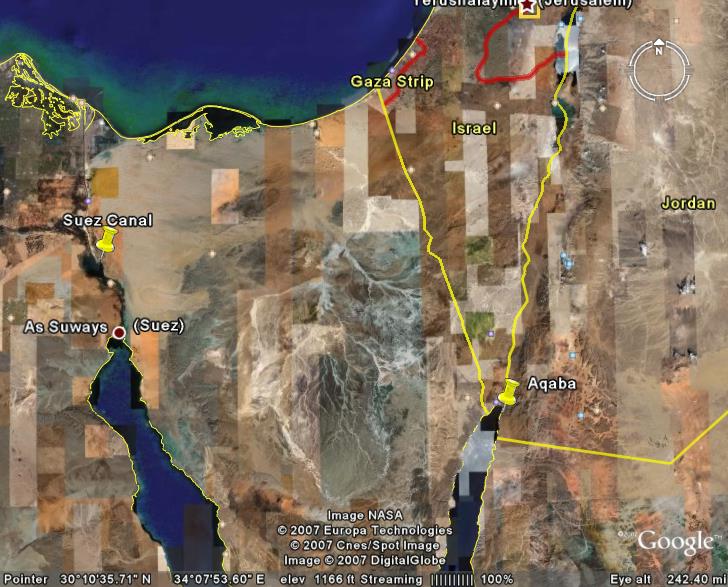Aqaba Incident
- 1906
In order to understand British action in
the Middle East in the early 20th Century it is necessary to understand
the importance of Egypt, and specifically of the Suez Canal, to Great
Britain. The ability to route shipping thought the Canal rather
than around the horn of Africa greatly simplified travel between the
British homeland and India. The British considered it essential
to maintain access to the Canal. Therefore when a dispute arose
between Egypt and the Ottoman Empire about the location of Egypt's
eastern border the British quickly became involved in the
conflict. The Ottoman Emperor claimed the Sinai region, which had
traditionally belonged to Egypt. The British feared that if the
Turks gained a foothold in the Sinai desert they would be in a position
to challenged Egyptian, and therefore British, control of the Suez
Canal. They also feared the Ottoman plan to build a railroad
connecting Aqaba to the Suez Canal. This would put the Turks in a
position to move from the interior of their empire to the Suez Canal in
a fairly short amount of time and so posed a serious threat to the
British.
The British neutralized this threat and reaffirmed its control over the
region. However, this incident awakened the British to the threat
to their position coming from the East and increased their interest in
Syria and Palestine as potential buffers between the deeper Middle East
and the jewel of Egypt. This awakened interest would continue to
grow throughout the second decade of the 20th Century and would impact
future Anglo-French negotiations. (Khalidi, 1980, 17-48).

